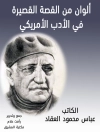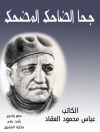In ‘Bibliomania; or Book-Madness, ‘ Thomas Frognall Dibdin explores the fervent obsession with books and the culture surrounding bibliophilia during the early 19th century. This work is marked by Dibdin’s exuberant prose, which expertly intertwines humor, critique, and a sense of wonder. The literary context is steeped in Romanticism, where the glorification of individual passion finds a particular resonance in the pursuit of books. Dibdin provides vivid descriptions of the eccentricities of book collectors, while also reflecting on broader themes of desire and obsession within the intellectual elite. Dibdin, a prominent bibliographer and book collector himself, draws upon his extensive knowledge and personal experiences in the literary world to illuminate the peculiarities of bibliomania. His background as a traveling antiquarian and lecturer instilled in him a profound love for books that transcended mere ownership, propelling him to write a critical, yet affectionate, homage to this shared insanity. His passion serves as a lens through which he examines the interplay between book culture and the broader societal values of his time. ‘Bibliomania’ is an essential read for anyone intrigued by the intersection of literature, obsession, and cultural critique. Dibdin’s lively narrative not only engages bibliophiles but also invites scholars and casual readers alike to ponder the significance of collecting as a reflection of identity and desire. This work remains an enduring exploration of the madness that lies at the heart of human devotion to the written word.
Yazar hakkında
Thomas Frognall Dibdin (1776–1847) was an English bibliographer, born in Calcutta to a naval officer. Educated in England, he pursued a career in the church, but his passion for books and bibliographic scholarship outshone his religious vocation. A prominent figure in the bibliophilic and antiquarian circles of the early 19th century, Dibhin’s influence extended through his writings and his involvement in literary societies. His seminal work, ‘Bibliomania; or Book-Madness’ (1809), illuminated the fervent obsession with book collecting in his era. In this treatise, Dibdin merges wit with erudition to portray the lengths to which collectors would go to acquire rare volumes, thus shaping scholarly discussion on the nature of book-collecting and the bibliophilic impulse. Dibdin’s florid and often anecdotal style captures the spirit of his time while also documenting the eccentricities of the bibliomaniacs he encountered or read about. This work, alongside others such as ‘Bibliographical Antiquarian and Picturesque Tour in France and Germany’ (1821), has positioned Dibdin as a central figure in the study of book history and bibliography. His contributions have been pivotal in laying the groundwork for modern bibliographic studies. Dibdin’s narratives are as much travelogues of personal scholarly adventure as they are studies in the history and passion for books. His legacy endures in the rich lineage of bibliographic scholarship and the enduring romantic image of the book collector.












